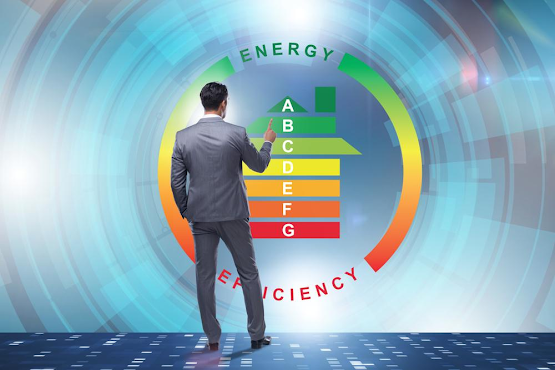The Role of Government in Enforcing Energy Laws and Compliance
In an era defined by the urgent need to address climate change and environmental sustainability, energy laws have emerged as pivotal tools for shaping a more responsible and resilient energy landscape. These laws are not merely legal constructs; they represent the embodiment of global commitments to transition towards cleaner, more efficient energy systems. While the formulation of energy laws is a critical step, their effective enforcement is the linchpin that determines whether these commitments translate into tangible results. This blog aims to delve deep into the indispensable role that governments play in enforcing energy laws and fostering compliance, underscoring the significant impact such efforts have on the trajectory of our planet.
Understanding Energy Laws: A Foundation
Energy laws, often encompassing a web of regulations, policies, and standards, serve as the legislative bedrock for steering energy-related activities toward sustainable paths. At their core, these laws harbor multifaceted objectives: promoting the adoption of renewable energy sources, curtailing greenhouse gas emissions, and optimizing energy consumption patterns. They span a wide spectrum of domains, including emissions reduction targets, energy efficiency norms, renewable energy incentives, and regulations governing the extraction of fossil fuels. Energy laws not only lay the groundwork for responsible resource management but also reflect global commitments to secure a cleaner and more sustainable energy future.

The Government's Key Role in Enforcement
The success of energy laws hinges on a robust enforcement mechanism, and this is where governments assume a role of paramount importance. In many cases, dedicated energy regulatory bodies are established to oversee the implementation and enforcement of these laws. These bodies, staffed with experts well-versed in the intricate interplay between energy, environment, and economics, are entrusted with the responsibility of monitoring compliance, investigating violations, and imposing penalties when necessary. Collaborating closely with industry specialists, environmental advocacy groups, and research institutions, these regulatory bodies ensure that energy policies are not just theoretical ideals but living guidelines with tangible impacts.
Benefits of Effective Enforcement
The fruits of diligent energy law enforcement extend far and wide, reaching every corner of society and the environment. One of the most significant advantages is the substantial reduction in greenhouse gas emissions. As regulatory agencies vigilantly monitor and control emissions from various sources, the quality of the air we breathe improves, and the pace of climate change decelerates. Moreover, effective enforcement translates into a level playing field for all participants in the energy market. This, in turn, fosters fair competition, spurring innovation and technological advancements that propel the transition to cleaner energy sources. On a macro level, stringent enforcement contributes to energy security by ensuring a reliable supply that is immune to disruptions.
Challenges in Enforcing Energy Laws
The path to effective enforcement of energy laws is riddled with challenges, often stemming from the inherent complexities of the energy landscape. As technology evolves at an unprecedented pace, new forms of energy generation and consumption emerge, rendering traditional monitoring mechanisms obsolete. The dynamic nature of the sector necessitates constant adaptation by regulatory bodies to stay ahead of potential violations. However, resource constraints often act as a barrier to these endeavors. Regulatory agencies grapple with limited funding and personnel, which can hinder their ability to conduct thorough monitoring and investigation. Additionally, ensuring a coherent and harmonized approach across different government departments and agencies can be intricate, leading to inconsistent enforcement practices.
Innovations in Energy Law Enforcement
In the age of digital transformation, technological innovations have paved the way for groundbreaking approaches to energy law enforcement. Remote sensing technologies, coupled with satellite monitoring and data analytics, equip regulatory bodies with powerful tools to track energy-related activities with a level of precision previously unimaginable. These innovations not only enhance the accuracy and effectiveness of monitoring but also bolster transparency and public trust. The availability of real-time data enables authorities to respond swiftly to potential violations and paves the way for preventive measures.
International Cooperation and Harmonization
Energy challenges extend beyond national borders, necessitating global collaboration to develop comprehensive solutions. International agreements, such as the Paris Agreement, underline the importance of collective action in addressing climate change and energy-related issues. Harmonizing energy standards and regulations across countries not only levels the playing field for industries but also fosters a sense of shared responsibility. By aligning efforts and exchanging best practices, nations can collectively achieve their energy and environmental targets more effectively.
Public Participation and Awareness
The active engagement of the public is a cornerstone of successful energy law enforcement. Well-informed citizens wield the power to advocate for stricter enforcement and drive changes in behavior among individuals and corporations alike. Public awareness campaigns can highlight the significance of energy laws, making citizens more conscious of the consequences of non-compliance. Armed with knowledge, individuals can demand accountability from both regulatory bodies and energy companies, creating a virtuous cycle of compliance and transparency. 
The Way Forward: Strengthening Energy Law Enforcement
As the world faces an increasingly urgent need for sustainable energy practices, governments must continue to invest in strengthening energy law enforcement. Allocating adequate resources and funding to regulatory agencies is paramount to their effectiveness. Furthermore, capacity building and training programs should be prioritized to equip enforcement bodies with the skills necessary to navigate the complexities of the evolving energy landscape. Improved coordination among different government entities is crucial to ensure a harmonized and consistent approach to enforcement.
Conclusion
Energy laws are not just legal instruments; they are a testament to our commitment to a greener, more sustainable future. Effective enforcement of these laws is the bridge that connects vision to reality. Governments, through the establishment of regulatory bodies, collaboration with experts, and innovative technological adoption, serve as the guardians of these laws. The benefits of their efforts are far-reaching, from cleaner air and reduced emissions to fair competition and reliable energy supply. While challenges persist, international collaboration and public participation offer avenues to surmount obstacles and drive progress. As we move forward, let us recognize the indispensable role governments play in enforcing energy laws, thereby laying the foundation for a brighter and more sustainable tomorrow.
Elevate your property's energy efficiency through VertPro Upgrades, where we not only specialize in Commercial Energy Audit and Benchmark Compliance consultancy but also offer the transformative service of Commercial Roofing through our Construction Marketplace.
As the trusted leader in this field, VertPro empowers Building Owners & Property Managers nationwide with innovative SaaS technology-based solutions. From Energy Benchmarking to Energy Audits/RCx Plus, our comprehensive approach ensures adherence to over 50 Energy Benchmarking & Energy Efficiency Laws.
Don't miss the chance to maximize your energy potential and property value - explore VertPro.com’s integrated solutions today!




Comments
Post a Comment